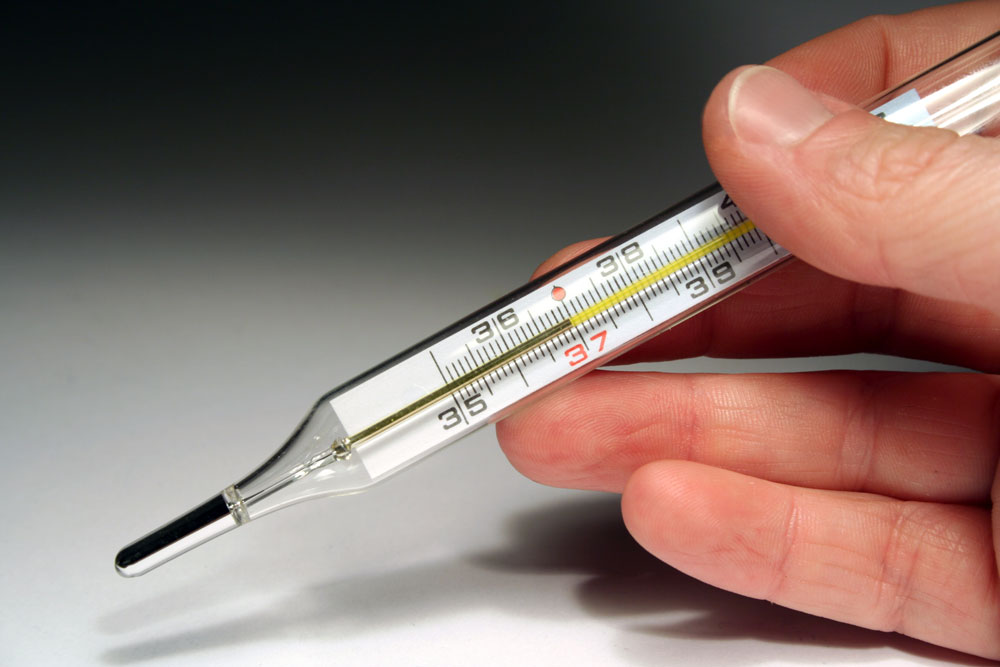How To Dispose Of Mercury
 CONTENTS
CONTENTS
- The dangers of mercury
- What household products contain mercury?
- How to dispose of mercury safely
- Get in touch
Whether the liquid metal has spilled in your home or you want to toss out an antique thermometer that contains it, the disposal of mercury must be done correctly according to local regulations to protect people's health and avoid damage to the environment. Should mercury spill in your property, you must bring in specialist cleaners as soon as possible.
We offer our mercury clean up and disposal services nationwide. Our technicians can handle any size and form of a mercury spill, and quickly make your property safe again. In an emergency, we can be on site within hours, no matter where you are in the UK.
Keep reading to learn more about disposing of mercury and mercury-containing products.
The dangers of mercury
Mercury is a unique metal that is liquid at room temperature. The shiny, silvery metal is highly toxic to humans, ecosystems, and wildlife. Elemental mercury evaporates very slowly and produces a toxic vapour. When inhaled, you can suffer from severe health problems such as kidney damage and neurological disorders including tremors and cognitive dysfunctions.
Although this form of mercury (elemental mercury) is the most dangerous, all kinds of mercury are toxic, such as methylmercury, which you can consume through food like fish.
You should always avoid direct contact with any form of mercury, particularly with elemental mercury, and if you suspect a spillage has happened, get professional help immediately – don't try fixing it yourself. It is also recommended you regularly check for household items that might contain this hazardous element.
What household products contain mercury?
Mercury used to be used in a variety of common household items. However, due to the dangers associated with potential spills, it is now illegal to manufacture or import products that contain mercury in Great Britain. Most household products that contain mercury are therefore antiques. Here are some of the most common household products that contain mercury.
Thermometers and barometers
Most domestic mercury spills are caused by broken traditional thermometers and barometers. The silvery liquid inside these instruments allows them to react to temperature and pressure changes accurately. Although newer digital models have largely replaced these older devices, they may still lurk in medicine cabinets or hang on walls as functional heirlooms.
CFL bulbs
Compact fluorescent lamps (CFLs) contain a very small amount of mercury vapour which is crucial for producing light when electricity passes through them. You must pay special attention when disposing of burnt-out CFL bulbs; don't just chuck them into your regular rubbish bin.
Electrical switches and relays
Older types of electrical switches - like those designed for use in safety applications like fire alarms - sometimes utilise small amounts of mercury to allow them function effectively under varying temperatures.
How to dispose of mercury safely
If you find yourself with mercury or mercury-containing products that need disposing of, it's crucial to handle them correctly. Mercury is highly toxic and poses a significant environmental threat if not dealt with properly.
Disposal protocols for households
Disposing of mercury thermometers and other mercury-containing products is usually quite straightforward. Your local council will have dedicated services for disposing of hazardous wastes though arrangements can vary across different councils.
If mercury spills in your home, bring in professionals immediately to clean up the spill and dispose of the hazardous waste. Don't attempt to clean it up yourself, nor should you throw mercury in household rubbish or put it down the drain. Professional cleaners will have the training and experience to eliminate all traces of the mercury from your home, and will be well-versed in disposal regulations.
ICE Cleaning's technicians can even detect the mercury vapour levels in your home and flush them out of the property. It is recommended you always bring in professionals so they can take care of the dangerous situation for you.
You can find out more about how to dispose of mercury-containing products safely in this blog.
Protocols for businesses
For businesses dealing with larger quantities or industrial use of mercury, compliance gets more technical but no less crucial. They need to classify their waste correctly using European Waste Catalogue codes as classification dictates subsequent handling processes.
Apart from adhering strictly to the hazardous waste regulations - which include getting premises registered as producing hazardous waste - businesses should also maintain records for at least two years post-disposal.
Contact your local council for advice
Your local council can be a wealth of information when you are looking to get rid of any dangerous substances like mercury. They'll guide you through their specific disposal processes and let you know about dedicated collection days or disposal facilities near you.
Bear in mind that different councils might have varied protocols based on available resources and regulations within each region, so checking with them directly ensures compliance while safeguarding community health and ecosystems.
Get in touch
Our technicians are fully permitted to handle and dispose of mercury for you. They are available day and night, 365 days a year, including bank holidays.
To book our technicians for mercury spill clean up, contact our friendly team on 0208 066 0360 or enquiries@icecleaning.co.uk.

Speak with me today,
I’m here to help
By asking you a few questions either via phone or email I can immediately provide a realistic estimation of the cost.
You’re in good company. We’ve cleaned for the following commercial clients… View all

Why choose us?
- Cater to a wide variety of cleaning situations
- Nationwide coverage, available 24/7
- Cater to commercial and domestic clients
- Free survey provided prior to quotation
- Emergency response team
- Offer a bespoke service designed to suit all your needs
- All technicians hold professional health and safety qualifications, including BICSc, IOSH, Dewpoint Professional & Safe Contractor
We’re fully accredited
We place best practise, professional expertise and health and safety at the core of our business. We’re fully compliant with all legal obligations. You can view a list of our accreditations below, or visit our Health & Safety page for more information.











-RGB-small.1707319151.jpg)




















